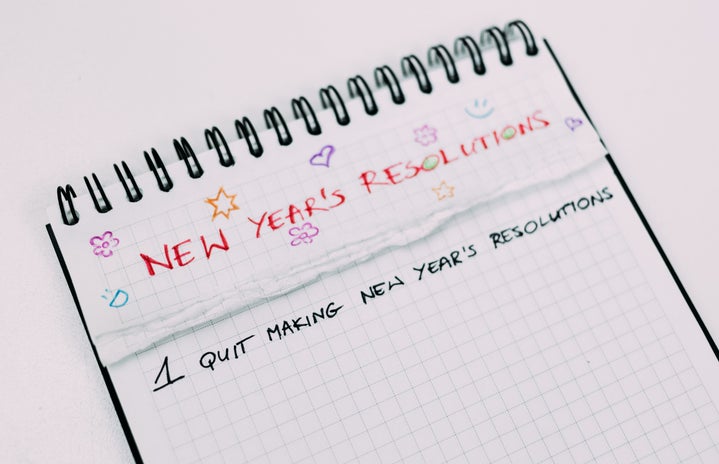“My New Year’s resolution is to work out every day,” “My New Year’s resolution is to get straight A’s,” “My New Year’s resolution is to get a bigger butt.” These are just a few examples of resolutions my friends and I have made over the years. Interestingly enough, not many are continued through the new year; whether they are forgotten, too difficult to hold on to, too niche and inapplicable, or even too broad, few people I know can say they have successfully stuck to their New Year’s resolution for the entirety of the year for which it is resolved. It is for this reason, among many others (which I will cover if you continue reading), that I think New Year’s resolutions are annoying, inaccurate, and highly overrated.
One of the main problems I have with New Year’s resolutions is their unattainability. I often find that people set nearly impossible goals for themselves to keep up for the entirety of a year, and many find themselves beaten, disappointed, and angry at their own lack of perseverance. People often sacrifice their happiness in order to achieve a goal that they believe will give their year some sort of “intrinsic value.” Now, don’t get me wrong, I think the practice of setting goals for oneself is amazing, but I have also come to understand that most goals are impossible to achieve without hitting a few bumps along the way; I have come to accept these failures as part of the process. I have also come to recognize that no goal is worth sacrificing my happiness for, whether it be food-related, work-related, or physical. The best way to cultivate a healthy and holistic lifestyle is to be disciplined and intentional, while also allowing yourself to break these goals and experience the things that truly make you happy.
Another large issue I have with the practice of New Year’s resolutions is the fact that they institute an idea within people that there is only one time of the year to re-evaluate and restart. The idea that society collectively gets to start over at the beginning of the new year is a nice sentiment but also detracts from the fact that people can choose to start over WHENEVER THEY WANT. I don’t need to wait for the start of the new year to tell myself that I’m going to go out into nature more, or that I’m going to try to be more aware of my surroundings (some things I have been working on recently). The idea that I can choose to start over whenever, and make a “resolution” whenever, is a freeing thought, and one that lessens the importance of making a “resolution” on a specific day of the year.
A final thought on the practice: competition. A resolution should be something that you make for yourself, something that is individual, personalized, and private. When it comes to New Year’s resolutions, however, I always feel that there is some sort of competition as to who can have the most enlightened, difficult, or impressive goal. Additionally, I feel there is a culture of winning for whoever can “keep their resolution the longest.” Many a time I have heard others speak about how well they have been keeping their resolutions, while I go down a spiral of how bad I’ve been about mine, leading me to feel disappointed and upset with myself. The idea of voicing your goals to others has its benefits in keeping you responsible for them but often also creates an air of superiority and competition.
While I have absolutely no hate for anyone who practices New Year’s resolutions and I think working on oneself is always an amazing, impressive thing to do, I hope this article has helped you perceive (what I think of) as some of the flaws in the tradition of New Year’s resolutions. I hope this has helped allow you to realize that you can choose to reform yourself no matter the time of year and that it is ok to make mistakes and hit some bumps along the road to self-betterment!


